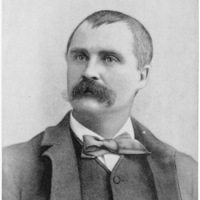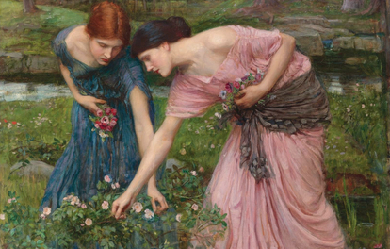Three Graves
HOW did he live, this dead man here,
With the temple above his grave?
He lived as a great one, from cradle to bier
He was nursed in luxury, trained in pride,
When the wish was born, it was gratified;
Without thanks he took, without heed he gave.
The common man was to him a clod
From whom he was far as a demigod.
His duties? To see that his rents were paid;
His pleasure? To know that the crowd obeyed.
His pulse, if you felt it, throbbed apart,
With a separate stroke from the people’s heart.
But whom did he love, and whom did he bless?
Was the life of him more than a man’s, or less?
I know not. He died. There was none to blame,
And as few to weep; but these marbles came
For the temple that rose to preserve his name!
How did he live, that other dead man,
From the graves apart and alone?
As a great one, too? Yes, this was one
Who lived to labor and study and plan.
The earth’s deep thought he loved to reveal;
He banded the breast of the land with steel;
The thread of his toil he never broke;
He filled the cities with wheels and smoke,
And workers by day and workers by night,
For the day was too short for his vigor’s flight.
Too firm was he to be feeling and giving:
For labor, for gain, was a life worth living.
He worshiped Industry, dreamt of her, sighed for her.
Potent he grew by her, famous he died for her.
They say he improved the world in his time,
That his mills and mines were a work sublime.
When he died—the laborers rested, and sighed;
Which was it—because he had lived, or died?
And how did he live, that dead man there,
In the country churchyard laid?
O, he? He came for the sweet field air;
He was tired of the town, and he took no pride
In its fashion or fame. He returned and died
In the place he loved, where a child he played
With those who have knelt by his grave and prayed.
He ruled no serfs, and he knew no pride;
He was one with the workers side by side;
He hated a mill, and a mine, and a town,
With their fever of misery, struggle, renown;
He could never believe but a man was made
For a nobler end than– the glory of trade.
For the youth he mourned with an endless pity
Who were cast like snow on the streets of the city.
He was weak, maybe; but he lost no friend;
Who loved him once, loved on to the end.
He mourned all selfish and shrewd endeavor;
But he never injured a weak one—never.
When censure was passed, he was kindly dumb;
He was never so wise but a fault would come;
He was never so old that he failed to enjoy
The games and the dreams he had loved when a boy.
He erred, and was sorry; but never drew
A trusting heart from the pure and true.
When friends look back from the years to be,
God grant they may say such things of me.


